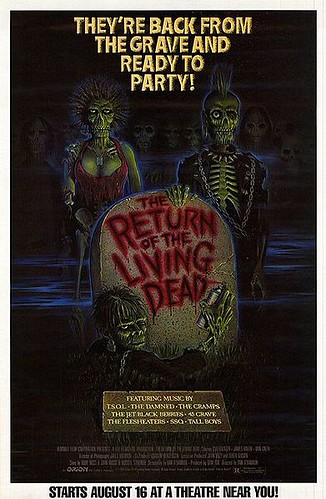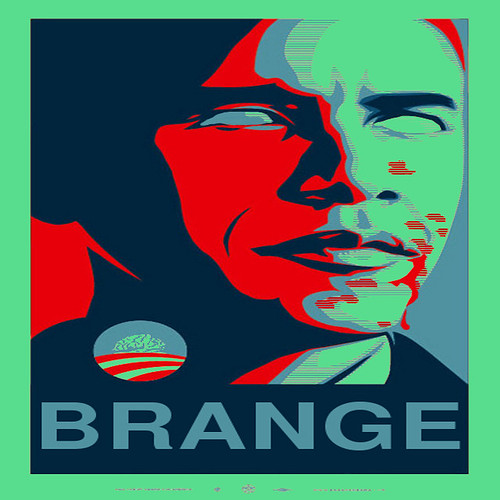
Conclusion
A prime example of Giallo cinema with one of the slickest, sickest murder scenes ever recorded. The whole film doesn't quite live up to the impossible standards of Susperia or Deep Red, but it is a return to form for director Dario Argento.
Plot
A prostitute with a really hot rack collects her payment from the drawer. She decides it doesn't meet minimum wage requirements, so she does a little redistribution of wealth from amongst her employer's belongings. She discovers some kinky toys like nine inch knives and decides that minimum wage is just a number, only she accidentally takes an incriminating scrapbook with her when she leaves. The employer ends up following her and kills her on a train.
The police recognise a pattern in the murder method that corresponds with cases many years before. This prompts them to consult the police officer who worked on those cases. He is now retired, but the case still fascinates him, so he decides to lend a hand.
Not the plot
Minimum wage is the minimum amount of compensation that an employer is allowed to pay to an employee. The purpose of minimum wage is:
- to protect employees from being exploited
- to allow employees to afford basic necessities
- to lift those in poverty out of poverty
- to narrow the gap between the rich and the poor
Sounds good? Well, imagine going into a supermarket to buy hairspray, like Pantera often did. You know that the cheapest hairspray costs roughly $5 per can, while the most expensive hairspray costs roughly $50 per can. Now you arrive at the supermarket, only to find that hairspray costs a minimum of $15 per can. Even the hairspray you know cost only $5 yesterday has been marked up. You find this outrageous so you ask the manager for an explanation. The manager tells you that the government now requires him to charge a minimum hairspray charge.
This is called price fixing. Whether the government does it with hairspray or minimum wage, or whether the maffia does it with the price of stolen sneakers makes no difference. These are cartel tactics. Yet the manager explains to you that those poor people who were working at the $5 per can hairspray factory will be able to afford the basic necessities now. Should you feel better about paying $15 for a $5 can of hairspray?
The problem is that people who were used to paying for cheap hairspray would now reconsider paying $15 for a $5 can of hairspray. Let's be honest - if you were going to pay $15 for a can of hairspray anyway, the cans that cost $20 before are not that expensive by comparison. The results are that those who really can't afford to pay more than $5 for a can of hairspray are going to go without hairspray, while those who can afford to pinch off more on hairspray are still going to try to get their money's worth. This means that they're going to fork out an extra $5 and get a $20 can of hairspray for $20 instead of a $5 can of hairspray for $15. Where does this leave those working at the $5 hairspray factory?
Instead of competing with the $7 or $10 can of hairspray competitors, they now have to compete with the $15 per can variety of hairspray - competitors that were way out of their league and whom they did not have to worry about before. The $5 hairspray factory becomes the victim of an inefficient market. It won't be long before the $5 hairspray factory has to downsize or restructure to compensate for less profits. If they close, it will be impossible for someone to open another $5 hairspray factory, because the minimum amount you may charge for hairspray is $15.
What's more is there's a huge difference between a minimum wage and a minimum living wage. In countries like America, the minimum wage is already far above what is considered the minimum living wage. This is part of why many of their industries are forced to outsource during the current economic crisis. Industries simply can't afford to pay a minimum wage that is above a minimum living wage when they are in trouble. A $15 can of hairspray is still worth more than a $5 can of hairspray that has been marked at $15, so companies will naturally try to retain their medium to high-level management rather than their minimum wage earners. Minimum wage earners can be replaced more easily. Outsourcing brings the advantage of foreign exchange rates, whether you're looking for minimum wage earners or medium to high-level employees.
The real effects of minimum wage are thus far removed from their aspirations. Minimum wage actually causes unemployment and distorts the labour market. Besides, working at McDonalds flipping burgers or serving coffee at Starbucks is not a career. Not even if you have a liberal arts degree. You're going to have to be satisfied with the bare minimum if you want to make a career out of menial labour, or start a business of your own and hope that minimum wage or labour unions don't nail you before you even try.
Review
The soundtrack is composed by Goblin, which has become a staple for Argento films. It plays a large part in making the murder scenes so powerful. The story is great, and although the pace of the film gets painfully slow at times, this is one of my top ten horror films of the nineties and beyond.
Director
Dario Argento.
Cast
Chiara Caselli, Stefano Dionisi, Gabriele Lavia, Barbara Lerici, Max von Sydow.
Rating







